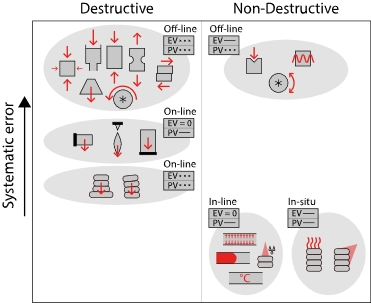A quality control framework for digital fabrication with concrete
DOI:
https://doi.org/10.21809/rilemtechlett.2023.181Keywords:
concrete processing, non-destructive, off-line, on-line, in-line, in-situAbstract
The quality control of digital fabrication with concrete has more stringent requirements than traditional casting. Firstly, since formwork is typically absent, or removed at an early stage in production, the material is exposed to external influences that can result in deformations, collapse, or deterioration. Therefore, the evolution of properties during the process has to be controlled. Secondly, the fabrication systems are typically more sensitive to dosing fluctuations, and the produced, optimized objects are more sensitive to defects, which requires the process variations to be controlled at a higher resolution. A framework is presented that categorizes quality control experiments into destructive and non-destructive, according to their systematic error, and according to the location of testing with respect to the process. This framework is applied to the fresh state mechanical performance of concrete and quality control strategies are derived from it. Lastly, research gaps are identified that are critical for the further development and adoption of these quality control strategies in digitally fabricated concrete.

Downloads
Published
How to Cite
Issue
Section
License
Copyright (c) 2023 Derk Bos, Rob Wolfs

This work is licensed under a Creative Commons Attribution 4.0 International License.
Authors retain copyright of the articles published in RILEM Technical Letters and grant the journal the right of first publication with open access. The work is simultaneously licensed under Creative Commons Attribution 4.0 International License (CC BY 4.0) that allows others to share and adapt the work under the following terms: 1) a proper attribution is given in a form of a reference to the original work's authorship and initial publication in RILEM Technical Letters (bibliographic record with the DOI link); 2) a link to the license is provided; 3) the changes (if any) are indicated.









